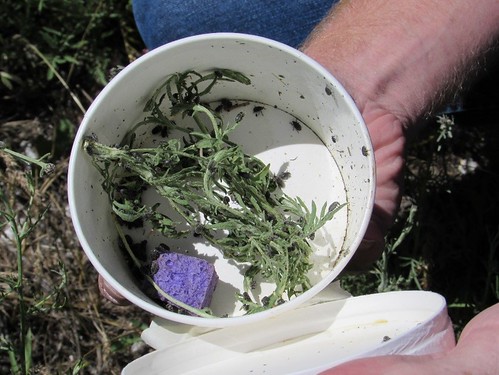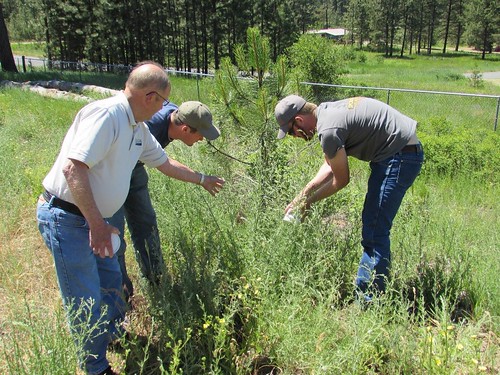
The U.S. Department of Agriculture’s Animal and Plant Health Inspection Service (APHIS) is helping Tribes in Washington State find and fight invasive species with funds from the 2014 Farm Bill Section 10007. The Reaching American Indian (RAIN4) project helps tribes identify and combat invasive species that are harmful to native plants, fisheries and animals that are harvested for food. Invasive species—including knotweed, Asian gypsy moth, zebra mussels, and a wide range of other foreign organisms—threaten these valuable resources.

RAIN4’s project director, Dan Fagerlie, who is also Washington State University’s (WSU) Extension Tribal Liaison, meets regularly with the tribes to prioritize the most threatening invasive species and determine which outreach tools would work best for them. Tools might include educational workshops, symposiums, educational tours, outdoor signage, posters, flyers, or other means of raising awareness and supporting early identification. Fagerlie then works with APHIS and other partners to organize and develop targeted outreach to meet the Tribes’ needs that includes their specific logos and contacts.
Carl Etsitty, APHIS’ Tribal Liaison, stresses the importance of these activities. “The Farm Bill funding allows us to build on previous successful partnerships with Tribes to create outreach programs that address shared regional priorities, like invasive species. These partnerships are critical to our mission of safeguarding America’s natural resources,” he said.
Tribes have been grateful for the assistance. “Several Tribes have said it’s unique because the workshops are tailored to their needs and educational resources, which has provided in-house training for Tribal staff and created outreach activities,” Fagerlie recounted. He highlighted the success of the project for the Confederated Tribes of the Colville Reservation in north-central Washington. “There have been several new identifications through the flyers and educational outreach we’ve done. We identified several nonnative plants and were able to implement control measures before they spread to widespread acreage,” he said.
RAIN4 ended in July 2017, but it and its successor, the Washington Invasive Species Project—also funded by the 2014 Farm Bill Section 10007—have made a significant impact on protecting critical tribal resources from threatening invasive species. Increased use of biological control agents for invasive weeds, increased monitoring for Asian gypsy moth, and increased grasshopper control—all in partnership with APHIS—are just some of the benefits of increased collaboration with Tribes. For more information, please contact Dan Fagerlie at fagerlie@wsu.edu.

